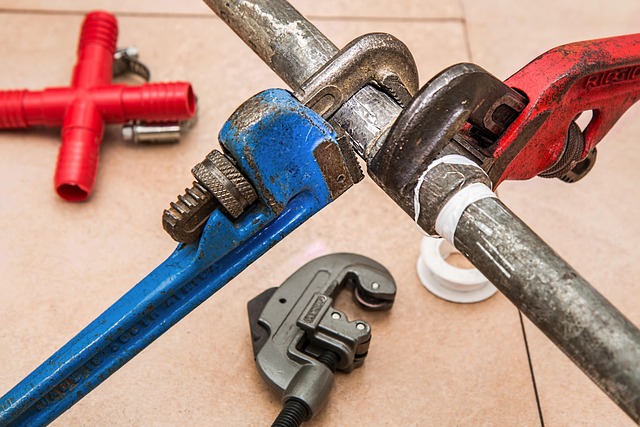To prevent frozen pipes during winter travel, homeowners in cold climates should insulate exposed pipes, set thermostats to at least 55°F (13°C), drain sprinkler systems, and turn off main water supplies. Additional strategies include keeping faucets dripping slightly, using heat sources like heating pads, ensuring proper ventilation, quickly shutting off the main water supply upon departure, and placing heating pads along exposed pipe runs. Regular checks for signs of freezing are crucial to prevent pipes from bursting and minimize water damage.
Planning a winter getaway? Don’t let frozen pipes ruin your travel plans! Understanding the risk of pipe freezing in cold weather is crucial. This guide outlines essential steps to prevent frozen pipes before you leave, ensuring your home stays protected. We’ll also cover what to do if pipes freeze while you’re away, offering practical tips for quick and effective resolution. Discover how to safeguard your home and enjoy your winter vacation worry-free.
- Understanding the Risk of Frozen Pipes in Winter
- Essential Steps to Prevent Pipe Freezing Before You Leave
- What to Do if Pipes Freeze While You're Away
Understanding the Risk of Frozen Pipes in Winter

Winter travel can pose a unique challenge for homeowners—the risk of frozen pipes. When temperatures drop significantly, water inside your pipes can freeze and expand, leading to potential bursts that can cause severe damage. This is especially true in regions with cold climates where freezing points are well below zero degrees Fahrenheit.
To prevent frozen pipes while traveling during winter months, it’s crucial to take proactive measures. How to Prevent Frozen Pipes involves a combination of simple yet effective strategies. These include insulating exposed pipes, setting thermostats to at least 55°F (13°C) while you’re away, and considering the use of pipe insulation or heat tape. Additionally, draining water from sprinkler systems and turning off main water supplies can significantly reduce the risk of freezing.
Essential Steps to Prevent Pipe Freezing Before You Leave

Before heading off on your winter travels, taking a few simple steps can help prevent frozen pipes while you’re away. Start by insulating exposed pipes in areas prone to temperature drops, such as exterior walls and basements. This can be done with foam insulation or specialized pipe sleeves available at most hardware stores. Additionally, consider shutting off the water supply to your home if you’ll be gone for an extended period, especially during extreme cold snaps.
Another effective strategy is to keep faucets running slightly at a low temperature. Even a drip can help prevent pipes from freezing by maintaining a constant water movement. You can also use heat sources like heating pads or electric blankets wrapped around pipes in sensitive areas. Lastly, don’t forget to check your home’s ventilation system to ensure it’s functioning properly, as adequate air circulation can aid in keeping pipes at a safe temperature.
What to Do if Pipes Freeze While You're Away

If pipes do freeze while you’re away, it’s crucial to act quickly to minimize damage. First, turn off your home’s main water supply at the shut-off valve to stop water flow and prevent further freezing. Then, if possible, let warm (not hot) water drip from faucets or open cabinet doors under sinks to create a slight heat source around pipes. You can also use heating pads or hand warmers wrapped in a towel and placed strategically along exposed pipe runs.
Regularly checking your home for any signs of frozen pipes is key to preventing damage. If you suspect freezing, don’t wait until you return home. Act swiftly by following these steps to keep your pipes from bursting and causing extensive water damage while you’re away.
When traveling during winter, preventing frozen pipes is essential to avoid costly damage. By understanding the risks and taking proactive steps, such as insulating vulnerable areas, shutting off water supply, and using heat sources like thermal curtains or left-on faucets, you can significantly reduce the chance of pipe freezing. However, if pipes do freeze while you’re away, knowing how to act quickly – like turning on lights to detect leaks and contacting emergency services – is crucial for minimizing potential harm. Implement these strategies to ensure a worry-free winter getaway.
